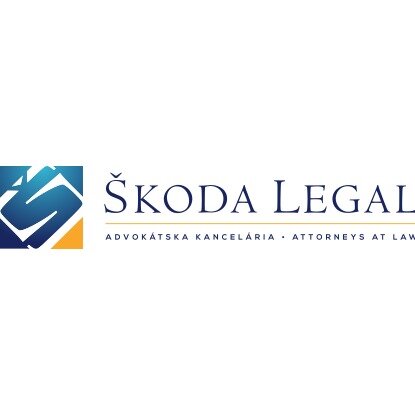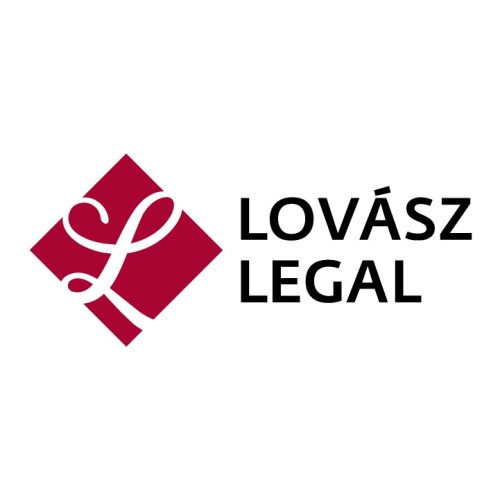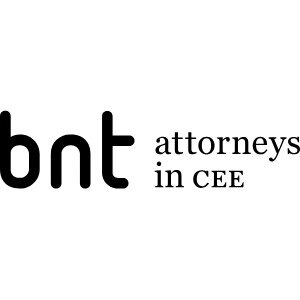Best Sanctions & Export Controls Lawyers in Slovakia
Share your needs with us, get contacted by law firms.
Free. Takes 2 min.
Or refine your search by selecting a city:
List of the best lawyers in Slovakia
About Sanctions & Export Controls Law in Slovakia
Sanctions and export controls are legal measures that restrict or regulate the transfer of goods, technologies, services, and financial assets across borders. In Slovakia, these laws are shaped by the country’s commitments as a member of the European Union, as well as by international agreements and domestic legislation. Sanctions can target individuals, companies, or entire countries, usually in response to security concerns, foreign policy objectives, or violations of international law. Export controls ensure that sensitive items or technologies are not transferred to destinations where they could threaten international security or violate Slovakia’s obligations.
Why You May Need a Lawyer
There are several situations where legal advice in the area of sanctions and export controls can be vital. Businesses involved in international trade may inadvertently breach regulations due to the complexity of applicable rules. Individuals and companies may be forced to navigate unexpected sanctions imposed on their customers or partners, face investigations by authorities, or need to apply for special licenses or exemptions. Lawyers specialized in this field can help you understand the regulatory environment, minimize risks, respond to compliance inquiries, handle disputes, and ensure all necessary documentation is accurate and up to date.
Local Laws Overview
Slovakia’s sanctions and export controls framework is largely determined by European Union regulations, which are directly applicable in domestic law. The Slovak government implements these rules through national authorities, primarily the Ministry of Economy for export controls and the Ministry of Foreign and European Affairs for sanctions policy. Key aspects include:
- EU Common Foreign and Security Policy sanctions, which cover arms embargoes, trade restrictions, asset freezes, and travel bans
- EU Dual-Use Regulation, controlling the export, transfer, and transit of dual-use items (goods, software, and technologies that can be used for both civilian and military purposes)
- National procedures for licensing exports of strategic items and goods under EU or United Nations sanctions
- Strong penalties for violations, including fines and potential criminal liability
- Obligations for Slovak businesses and financial institutions to conduct due diligence and prevent dealings with sanctioned persons or entities
Frequently Asked Questions
What are sanctions, and who imposes them in Slovakia?
Sanctions are restrictive measures typically imposed by the European Union, United Nations, or Slovakia itself to pursue foreign policy or security objectives. They are administered in Slovakia by the relevant governmental authorities.
Does Slovakia have its own sanctions, or does it follow the EU?
Slovakia primarily implements sanctions adopted by the European Union and United Nations, but can add national measures in certain cases.
What are export controls, and which goods are affected?
Export controls refer to regulations restricting the transfer of specified goods, software, or technology - particularly military and dual-use items that could threaten security if misused.
How do I know if my business activities are subject to export controls?
If your business involves the export of goods, technology, or software from Slovakia, especially to non-EU countries, you may be subject to export controls. It is essential to review the relevant EU and Slovak control lists.
What should I do if I suspect a transaction may violate sanctions?
Immediately halt the transaction and seek legal advice. Conduct a risk assessment and notify the appropriate authorities if required.
What penalties exist for breaking sanctions or export control laws in Slovakia?
Penalties can include substantial administrative fines, forfeiture of goods, as well as criminal charges in serious cases, such as knowingly exporting controlled goods without a license.
How do I apply for an export license in Slovakia?
You must apply to the Ministry of Economy, submitting the required documentation and information about the goods, end-user, and destination.
Are there exemptions to export controls or sanctions?
Some exemptions or authorizations may be available based on humanitarian grounds or specific end-use. Each case requires careful legal analysis and usually an application to relevant authorities.
What is due diligence, and why is it important?
Due diligence involves checking whether a potential business partner, transaction, or good is subject to sanctions or export controls. It is required by law to avoid unintentional violations.
Who enforces sanctions and export controls in Slovakia?
The Ministry of Economy and customs authorities enforce export controls. The Ministry of Foreign and European Affairs manages sanctions, while law enforcement agencies investigate serious breaches.
Additional Resources
For further information or assistance, consider contacting or consulting the following:
- Slovak Ministry of Economy - Department for Export Controls and Licensing
- Ministry of Foreign and European Affairs of the Slovak Republic - Sanctions coordination and implementation
- Slovak Trade Inspectorate for consumer and business protection
- European Union Sanctions Map and Resource Center
- Customs Authorities for border controls and compliance information
- Chambers of Commerce and business associations for industry-specific guidance
Next Steps
If you require assistance regarding sanctions or export controls in Slovakia, consider the following approach:
- Assess your activities for any links to controlled goods, technologies, or sanctioned countries or entities
- Gather all relevant documentation about your products, partners, and transactions
- Consult available governmental guidelines or reach out to the responsible ministries listed above
- Seek legal advice from a lawyer specializing in sanctions and export controls to clarify your obligations and risks
- Implement robust internal compliance programs to monitor and respond to new developments in sanctions or export controls law
- Stay updated by signing up for alerts from governmental bodies or professional advisers
Acting proactively and consulting experts can help you navigate this complex legal area, ensuring your business remains compliant and protected from potential penalties.
Lawzana helps you find the best lawyers and law firms in Slovakia through a curated and pre-screened list of qualified legal professionals. Our platform offers rankings and detailed profiles of attorneys and law firms, allowing you to compare based on practice areas, including Sanctions & Export Controls, experience, and client feedback.
Each profile includes a description of the firm's areas of practice, client reviews, team members and partners, year of establishment, spoken languages, office locations, contact information, social media presence, and any published articles or resources. Most firms on our platform speak English and are experienced in both local and international legal matters.
Get a quote from top-rated law firms in Slovakia — quickly, securely, and without unnecessary hassle.
Disclaimer:
The information provided on this page is for general informational purposes only and does not constitute legal advice. While we strive to ensure the accuracy and relevance of the content, legal information may change over time, and interpretations of the law can vary. You should always consult with a qualified legal professional for advice specific to your situation.
We disclaim all liability for actions taken or not taken based on the content of this page. If you believe any information is incorrect or outdated, please contact us, and we will review and update it where appropriate.
Browse sanctions & export controls law firms by city in Slovakia
Refine your search by selecting a city.

















